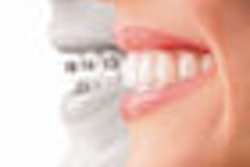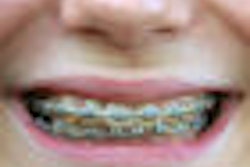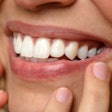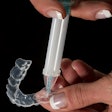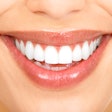
Australian researchers have a created a screening tool to help clinicians determine whether individuals will be satisfied with their elective cosmetic dentistry surgery procedures (Annals of Plastic Surgery, August 25, 2010).
The nine-item questionnaire probes prospective patients' physical and mental health, as well as whether they have a positive self-image and have been dissatisfied with previous aesthetic surgery or aesthetic dentistry procedures.
Scores on this screener identify individuals who are likely to be dissatisfied after procedures.
Richard G. Stevenson, D.D.S., chair of the restorative dentistry department at the University of California, Los Angeles (UCLA) School of Dentistry, praised the effort.
— Richard G. Stevenson, D.D.S.,
UCLA School of Dentistry
"This screening tool has some merit. Because a lot of us in dentistry are very excited about helping people out who want to improve their looks, but most of us also have come to the realization that you should get to know your patients very well before you embark on that sort of treatment," Dr. Stevenson told DrBicuspid.com. "That's because we have intuitively, or perhaps because of past experience, learned that some patients are going to be more difficult to satisfy than others."
He noted that this screening tool could obviate the need to refer some patients for psychological assessment to determine whether they are good candidates for cosmetic surgery.
Alyson Koslow, D.D.S., a clinical assistant professor of restorative dentistry at the University of Illinois at Chicago College of Dentistry, concurred.
"I believe that by evaluating the psychosocial risk factors of potential cosmetic dentistry patients, we can address other external factors contributing to the persons' dissatisfaction with their appearance and associated low self-image," she said. "This allows the dentist or doctor to select appropriate patients who have realistic expectations and therefore bring forth more satisfied postoperative patients."
Elements of patient dissatisfaction
A three-member team from Melbourne first evaluated the preoperative and postoperative psychosocial characteristics of eight people undergoing elective aesthetic dentistry procedures and another 76 having cosmetic facial surgery. The patients were administered a questionnaire before surgery and again six months after surgery.
The preoperative questionnaire covered a wide range of standardized measures of psychosocial dysfunction, including the General Health Questionnaire, the Hospital Anxiety and Depression Scale, and the Rosenberg Self-Esteem Scale. The researchers also asked about such things as demographic characteristics, degree to which the presenting complaint has bothered the patient, and the patients' evaluation of the likelihood of the procedure achieving their desired outcome.
The postoperative questionnaire involved just four items. The first asked, "Compared to your expectations, what was the overall result of your surgery: better than or as expected or worse than expected?" The second item probed whether the patients felt they had achieved their objectives in having the procedure, the third asked whether they were satisfied with the outcome, and the fourth posed the question of whether the surgery and recovery met with the patients' expectations.
Overall, the patients' responses to the postoperative questions revealed significant variability in whether they were satisfied with the procedures. So the investigators performed statistical analyses that revealed that, again, there was variability in the correlation between the patients' responses to the preoperative questionnaire and to each of the four postoperative questions.
The researchers decided that the first question was the most revelatory of the four, and hence based their scoring tool -- which they dubbed the PreFACE -- on it.
"We selected item 1 based on the empirical literature and our clinical experience of the relevance of unrealistic expectations to patient dissatisfaction," senior investigator Alun Jackson, Ph.D., professorial fellow and associate dean at the University of Melbourne, told DrBicuspid.com.
The 9 PreFACE questions
Dr. Jackson and his co-investigators then compared patients' responses to the postoperative item 1 with their responses to each item in the preoperative questionnaires. They found that nine questions were the most statistically significantly correlated with expression of postoperative dissatisfaction on item 1:
- Patients' general health
- Whether they are feeling constantly under strain
- Finding everything getting on top of themselves
- Losing confidence in themselves
- Lacking anhedonia (inability to gain pleasure from enjoyable experiences)
- Worrying about an appearance defect
- How much time they spend getting ready before going out
- Satisfaction with their facial features
- Dissatisfaction with previous cosmetic surgical procedures
These nine questions form the contents of the PreFACE tool. The investigators assigned a certain number of points to each of the three to five different possible responses to each question -- for example, for the last question, a score of 0 for the response "No, I have not had any previous procedure(s)"; 0 for the response "No, I have been satisfied with previous procedure(s)"; and a score of 1 for the response "Yes, I have been dissatisfied with previous procedure(s)." They then determined that patients with an overall score of 11 or more were likely to be dissatisfied with any future cosmetic surgeries.
"I would say that it is a useful tool for dentists and their staff in identifying/raising awareness regarding those patients who might be at risk of being dissatisfied with the outcome of cosmetic procedures, and hence who may benefit from further preoperative consultations and counseling to ensure their expectations are realistic and can be met," concluded lead author Roberta Honigman, M.S.W., from St. Vincent's Hospital Mental Health Service in Melbourne.
Copyright © 2010 DrBicuspid.com




